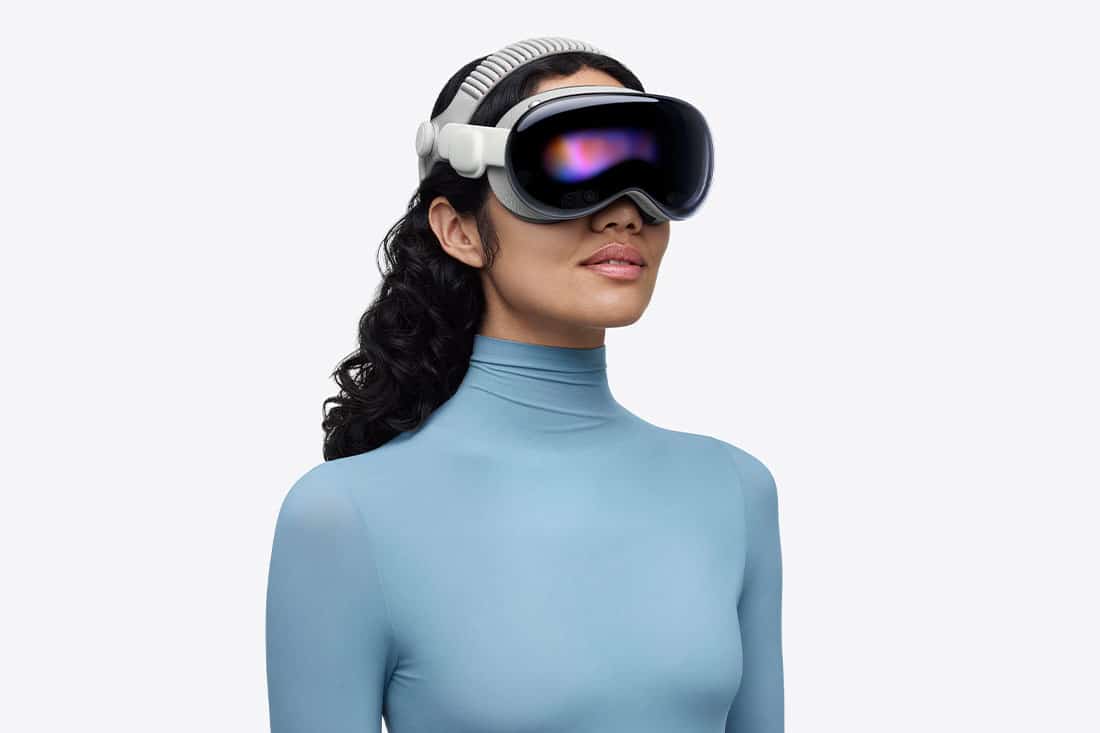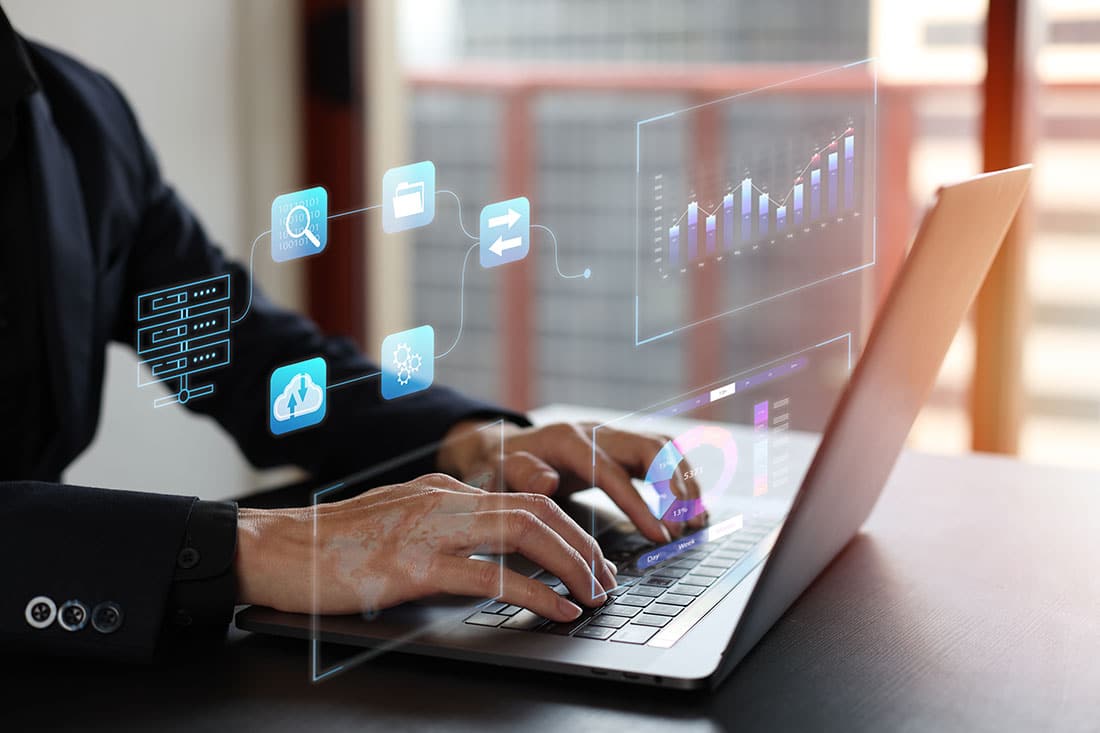The office of the future might not have walls—or even furniture. Apple’s new Vision Pro, with its floating windows and distraction-free design, turns any setting into a private digital workspace. Whether on a plane, a couch or in a café, users can build a multiscreen setup powered entirely by sight and gesture. For some, these high-tech solutions are paving a bold new way to work beyond the traditional desk.
Apple’s new Vision Pro transforms your workday into a virtual experience
The new Vision Pro is Apple’s strongest push yet to make spatial computing practical for real work. Powered by a new M5 chip, the headset runs faster, cooler and more efficiently, meaning smoother multitasking when you’ve got multiple virtual screens floating around you.
Apple’s new M5 chip isn’t just powering the Vision Pro, it’s also the heart of several other cutting-edge devices in the company’s lineup this year. From the latest MacBook Pro to select iMac models, the M5 delivers faster performance and better energy efficiency, making multitasking and creative work smoother than ever.
The new Vision Pro’s displays are sharper too, with richer color and better text clarity, crucial for anyone staring at documents or design software all day. The M5 chip significantly enhances the Vision Pro’s visual fidelity, driving 10% more pixels across its custom micro-OLED panels for noticeably sharper text, finer detail and overall improved clarity compared to the earlier model. Even the fit has been fine-tuned: A redesigned Dual Knit Band makes it lighter and more comfortable for longer sessions, addressing one of the biggest complaints about the original model.
Control apps effortlessly with Vision Pro eye tracking and gestures
Apple’s latest visionOS turns the Vision Pro into something closer to a digital command center. It lets you expand your Mac into a virtual workspace, control apps with just your gaze and gestures and connect the accessories you already use. Focus modes mute distractions, and spatial widgets position your reminders and messages right in your line of sight, creating a cleaner, calmer way to work.
You can arrange multiple apps side by side, resize them with a simple pinch and move them anywhere in your field of view, whether you’re working up close or creating a wide, panoramic setup. With the new visionOS 26 interface, you can bring 3D models into your projects, review them in real scale and interact naturally using gestures. For designers, engineers and creators, the Vision Pro unlocks the ability to bring projects off the screen and into the real world, where ideas can be visualized and refined.
Work, collaborate and multitask remotely with virtual monitors
Apple says the new Vision Pro marks a major leap forward in performance and experience. “With the breakthrough performance of M5, the latest Apple Vision Pro delivers faster performance, sharper details throughout the system, and even more battery life, setting a new standard for what’s possible in spatial computing,” said Bob Borchers, Apple’s vice president of Worldwide Product Marketing this week. “Paired with the comfortable Dual Knit Band, innovative features in visionOS 26, and all-new Apple Immersive experiences spanning adventure, documentary, music, and sports, spatial computing is even more capable, entertaining, and magical with the new Vision Pro.”
With a single charge, the upgraded battery provides up to 2.5 hours of general use and up to three hours of video playback, ensuring that you can power through long meetings, extended work sessions or collaborative virtual projects without constantly worrying about recharging. This makes the Vision Pro ideal for professionals who rely on uninterrupted focus, for students attending back-to-back lectures or for anyone who wants to enjoy immersive media on the go without interruption.
With more companies experimenting with hybrid and remote work, employees are looking for ways to focus, collaborate and multitask without being tied to a physical office. Devices like the Vision Pro let users create a distraction-free workspace anywhere, complete with virtual monitors, immersive collaboration tools and at least the feeling of being in an office with others.
Hardware and software advances are making these headsets more practical for everyday work. Faster processors, lighter designs, higher-resolution displays and intuitive controls mean you can now spend hours in a headset without discomfort or losing focus.
Freedom and flexibility: Employee benefits of spatial computing
According to a 2022 study by multinational professional services firm PricewaterhouseCoopers, more than 500 U.S. companies reported they had either implemented VR into their operations or were in the process of doing so. While the practical benefits aren’t guaranteed for all, many companies are still investing and imagining a future where virtual workspaces could be a standard part of everyday business. These firms are investing in technology that gives employees more freedom and the opportunity to experiment with tools designed to simplify work—such as VR headsets for virtual meetings, immersive training simulations and 3D design collaboration.
For employees who thrive on visual multitasking or simply the ability to escape the distractions of a coffee shop or home environment, spatial computing could become a powerful tool, if not a replacement, for the traditional desk. Whether it becomes standard practice or remains a niche solution will depend on how easily businesses and workers adapt to this promising new, boundaryless way of working.
Photo from apple.com








